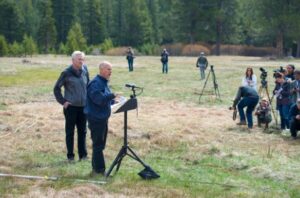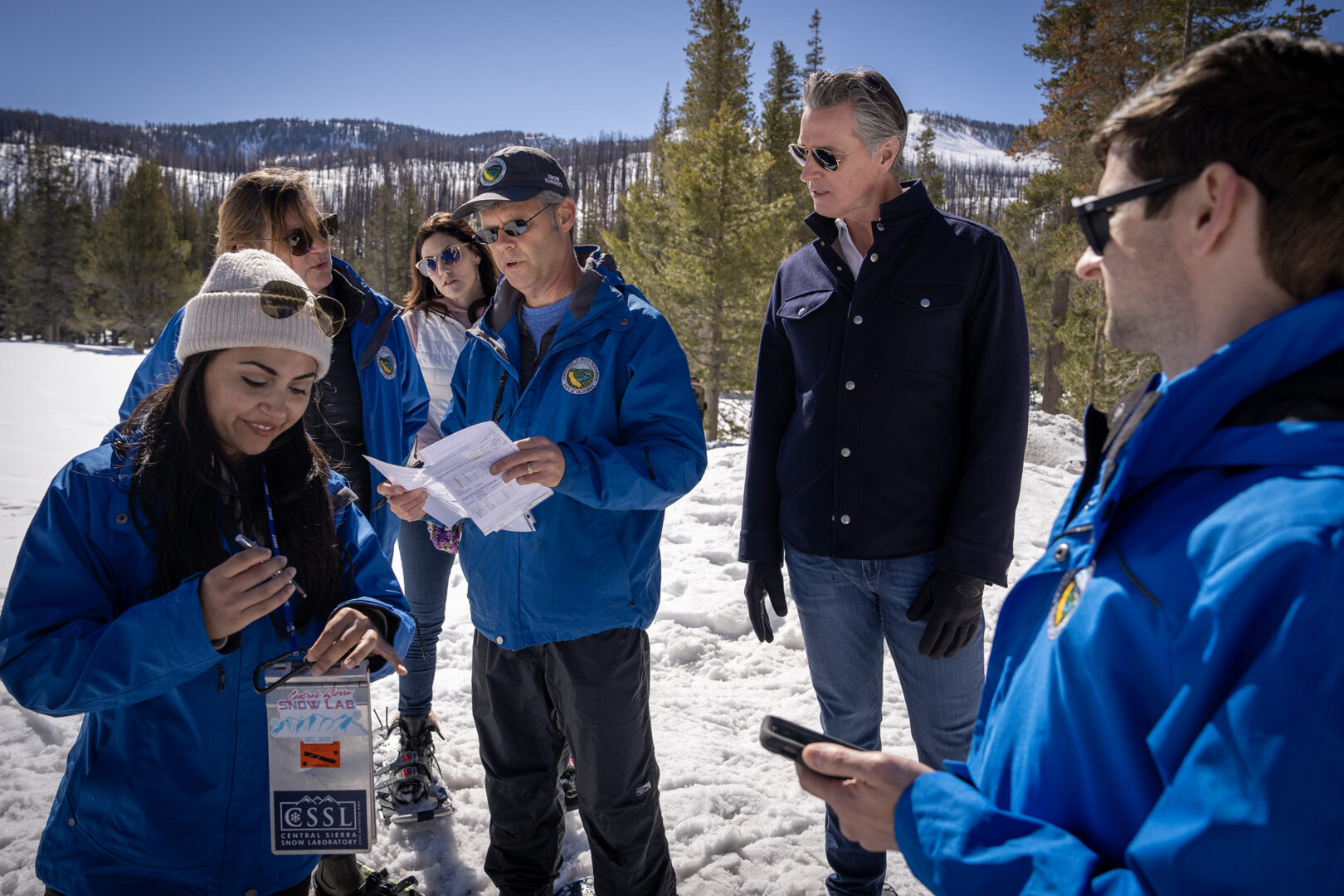WHAT YOU NEED TO KNOW: At another above average snowpack survey, Governor Newsom released the state’s updated Water Plan to protect California’s water supplies from the climate crisis while boosting our ability to capture and store water for when dry conditions return.
PHILLIPS STATION — In the face of the climate crisis, the Newsom Administration is continuing to take action to protect water supplies when it’s dry and to capture more water during wet seasons. In addition to investing billions of dollars to boost water supplies and drastically expanding the state’s storage capacity, the updated California Water Plan demonstrates how planning at a watershed scale provides the most comprehensive solutions for climate resilient water supplies for all Californians.
This plan is directly tied into today’s snow survey, a key indicator of expected runoff that this plan helps both state and local governments capture and store. It recorded 64 inches of snow depth and a snow water equivalent of 27.5 inches, which is 113 percent of average for this location and above average overall


April Snow Survey at Phillips Station pictured today (top) and in 2015 (bottom), demonstrating extreme weather swings. Photo credit: DWR.
WHAT GOVERNOR NEWSOM SAID: “In the past few years alone, we’ve gone from extreme drought to some of the most intense rain and snow seasons on record – showcasing the need for us to constantly adapt to how we manage our water supplies. The water plans and strategies we’re implementing are each targeted components of our overall effort to deliver clean water to Californians by capturing, storing, and conserving more water throughout the state. This plan is a critical component of that effort.”

Governor Newsom at April Snow Survey at Phillips Station.
Here are just a couple examples of what California has implemented since the last Water Plan, highlighting its importance:
- Created a Flood-Managed Aquifer Recharge program, capturing and spreading flood flows to recharge aquifers – boosting the state’s water capture and storage abilities.
- Integrated climate science and research to help vulnerable communities defend against floods and drought.

This plan is a critical component of how California plans to capture more water, store it in reservoirs, replenish and recharge groundwater aquifers, protect against floods, and more. It’s directly tied to the state’s other water strategies:
- Water Resilience Portfolio. Outlines 142 state actions to protect our water supply from climate impacts by boosting water supplies, restoring natural ecosystems, and building infrastructure to store and move more water.
- Water Supply Strategy. Hotter and drier weather could diminish our water supply up to 10% by 2040, and this strategy offsets that loss – adding enough storage, recycling, and smarter water use to supply 8.4 million households every year.
These plans and reports are all intertwined, serving as critical blueprints for managing different parts of California’s complex water supply system – the Supply Strategy is offsetting the 10% loss we’re facing, the Resilience Portfolio boosts water supplies on top of that by building more and restoring natural water sources, and the Water Plan guides California’s water management and conservation.
California’s other actions to boost water supplies include:
- Nearly $9 billion in water investments over the last three years. Track water projects in your community here.
- Expanded water supply and storage through groundwater recharge and other projects by over 400 billion gallons.
- Streamlining projects and limiting litigation delays to spur new and improved water infrastructure.
- Large-scale environmental restoration, including the removal of four dams from the Klamath River – the nation’s largest dam removal project.
More is needed to expand California’s water supplies. During this year’s storms alone, the Delta Conveyance Project could’ve captured enough water to supply 9.4 million people; the streamlined Sites Reservoir Project could hold enough water for 3 million households’ yearly usage.
###
